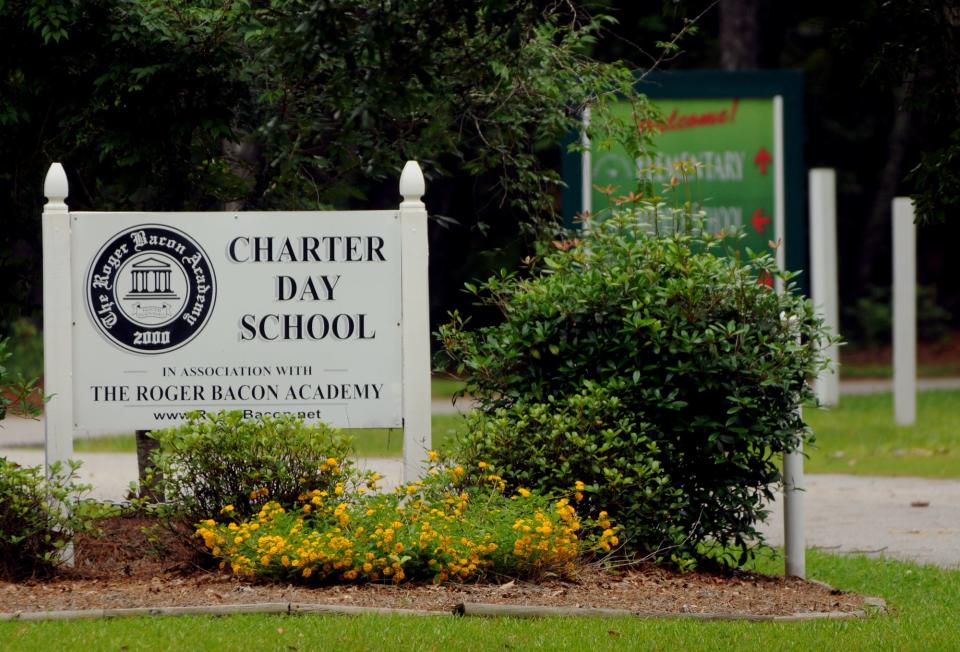NC lawmakers seek to put pants-wearing charter school girls back into skirts. Here’s how
Following a court ruling that said it is unconstitutional for North Carolina’s taxpayer-funded charter schools to make girls wear skirts in school instead of pants, some North Carolina lawmakers want to exempt charter schools from respecting the Constitutional rights of their students.
They seek to pass a law that says, “Actions of a charter school shall be considered as actions of private nonprofit and not of a state actor.” This is despite laws and policies that since the 1990s have said charter schools are public schools.
The legislators’ effort follows court decisions in 2022 and 2023 in Peltier v. Charter Day School, Inc., a case from the Wilmington area that made international headlines. Judges said Charter Day School’s skirts-for-girls, pants-for-boys dress code violated the female students' Constitutional right under the 14th Amendment to be treated the same as the male students.
Skirts required? Supreme Court declines to hear case challenging Leland charter school dress code

Girls wanted to wear pants for comfort and modesty
At Leland-based Charter Day School, the girls and their families disagreed with the dress code. Among their reasons: The girls were more comfortable in pants, they preferred pants for playground activities, and they wanted more freedom to move and sit without worry that boys would look up their skirts.
The school founder in 2015 said the dress code was part of an effort to maintain “chivalry and respect” among the students. He said chivalry is a code of conduct where women are “regarded as a fragile vessel that men are supposed to take care of and honor,” and the skirts rule was intended to treat girls “courteously and more gently than boys.”
Charter Day School (which has been renamed Classical Charter Schools of Leland) tried to claim it isn’t truly a public school. Instead, it asserted, it is a privately run school that receives public funding through its charter and therefore is not a government-run entity, and therefore not required to abide by the civil rights protections of the U.S. Constitution.
While private schools can have dress codes that treat the boys and girls differently, the 4th Circuit Court of Appeals in June 2022 said charter schools are tax-funded state actors, and therefore subject to the same Constitutional mandates as traditional public schools. The ruling said the outsourcing the state’s job of educating its students to a nonprofit does not mean the nonprofit is allowed to roll over the student’ rights.
The U.S. Supreme Court in June of this year let the ruling stand.
Library changes: Lawmakers want grown-up books, movies in NC libraries put in ‘adults only’ areas
Charter schools: Independent but under state oversight since 1996
The legislature in 1996 created North Carolina’s charter school system. Chartered public schools are independent from the traditional public school system and are run by nonprofit organizations. Like traditional public schools, charter schools operate under State Board of Education oversight and performance standards. As with traditional public schools, charter schools are allocated taxpayer money for each student they enroll, and they do not charge tuition.
Legislation made public last week at the North Carolina General Assembly in Senate Bill 90 would to get around the girls-cannot-be-forced-to-wear-skirts ruling with a law that would say charter schools are not state actors.
Would that hold up in court?
Liz Barber of the American Civil Liberties Union of North Carolina, which represented the girls in the lawsuit, expressed doubts.
“I don’t know how … you can have an entity that, whose employees are in the state retirement system, and is fulfilling what’s traditionally a state function — education — and then say that it’s not a state actor,” she said.
The politically right-wing John Locke Foundation in Raleigh argues that charter schools should not be considered “state actors” — that this would undermine the purpose for which charter schools were created.
“That designation could subject charter schools to many more government rules and regulations,” said Mitch Kokai, the foundation’s senior political analyst, in an article in the foundation’s Carolina Journal newspaper. “The loss of independence would help defeat the purpose of offering charters as a public alternative to traditional district schools.”
Senior North Carolina reporter Paul Woolverton can be reached at 910-261-4710 and pwoolverton@fayobserver.com.
This article originally appeared on The Fayetteville Observer: NC charter schools bill would reduce civil rights of their students

